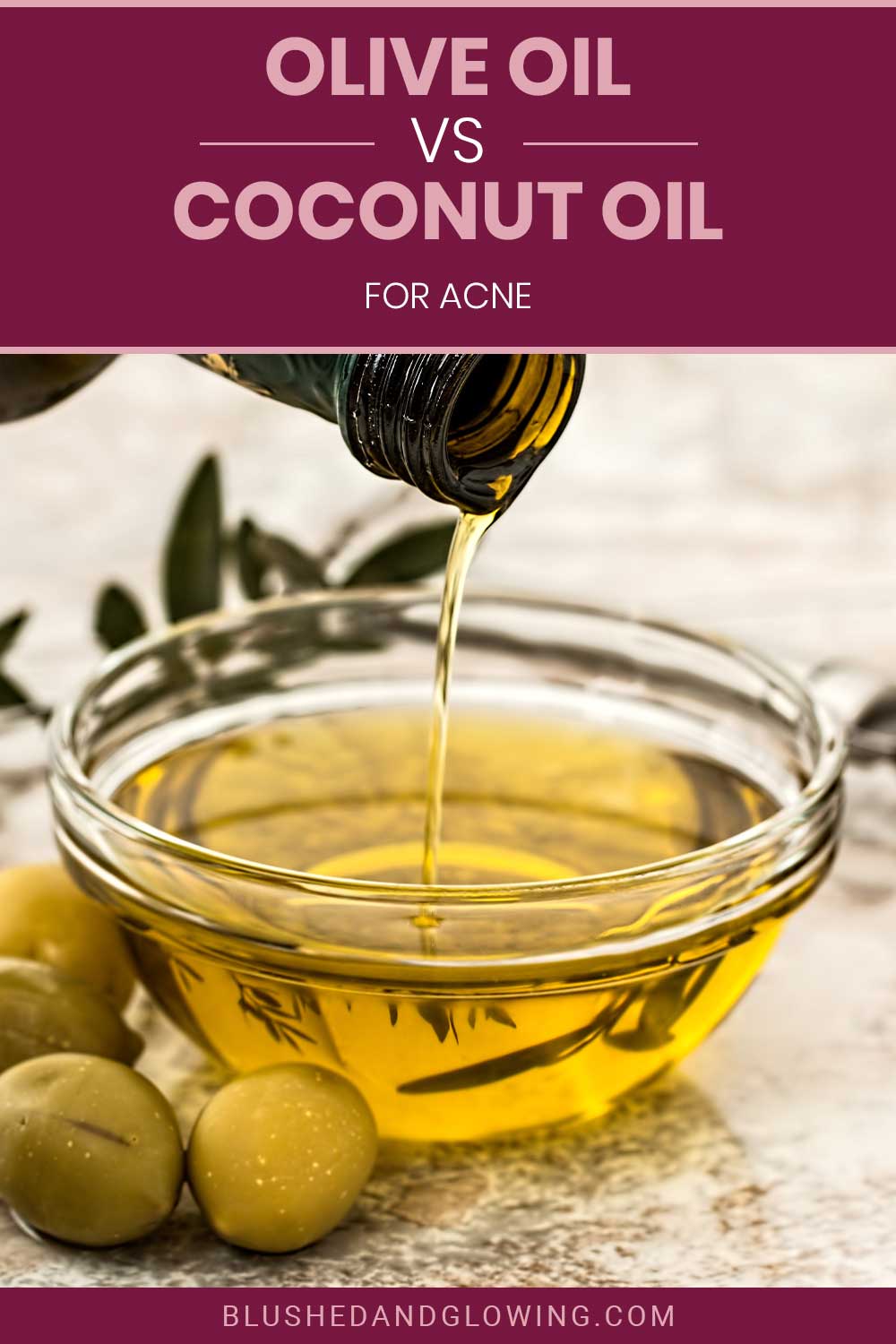Olive Oil Vs Coconut Oil for Acne
We may earn commissions for purchases made through links on our site. Learn more on our about us page.
Acne-prone skin can be a nightmare. If you are someone who has to deal with it, you know how frustrating it can be to find the right products to manage your skin concerns.
Both olive oil and coconut oil are often praised for their potential skin benefits. But when it comes to acne, which one of them is the better choice?
We will explore each oil’s properties, how they affect the skin, and what researchers say about their effectiveness in treating. So, let’s dive right into this very oily debate.

What are the Similarities?
When it comes to treating acne, olive oil, and coconut oil may seem like an unlikely pair. After all, they come from different parts of the world and have distinct tastes and textures.
However, when it comes to their potential benefits for acne-prone skin, there are also some similarities. Here are the main similarities:
- Each has anti-inflammatory properties.
- Both are excellent for moisturizing.
- They can both be used as natural makeup removers.
What are the Differences?
While there are some similarities that we just discussed when it comes to treating acne-prone skin, there are also some very notable differences between these two oils.
Understanding this different food makes you more capable of choosing the right option for your knees. Here are some of those differences:
- Their comedogenic ratings are very different. Comedogenicity refers to a substance’s ability to clog pores and potentially cause acne. Coconut oil has a higher rating than olive oil.
- Each is composed of different types of fatty acids. Coconut oil is composed of a medium-chain fatty acid, while olive oil is made up of mostly monounsaturated fatty acids.
- They may be more effective on different types of acne. Some people find that coconut oil works better for their specific type of acne, while others may find more success with olive oil.
Pros & Cons: Olive Oil vs. Coconut Oil for Acne
Both olive oil and coconut have potential benefits for treating acne, but they also have their drawbacks. To understand this, we created a quick pros and cons list to help you with your ultimate decision-making process. Here are the pros and cons:
Olive Oil
Pros:
- Contains anti-inflammatory compounds
- Lower comedogenic rating
- Rich in monounsaturated fatty acids
- Contains antioxidants
Cons:
- It may not be as effective at fighting acne-causing bacteria compared to other oils
- Some find it a bit heavy and greasy on the skin
- Individuals have experienced skin irritation or allergic reactions
Coconut Oil
Pros:
- Contains lauric acid
- Has moisturizing properties
- It can help brighten the skin
- It can be used as a natural makeup remover
Cons:
- Higher comedogenic rating
- Maybe too heavy and oily for some skin types
- Some have experienced allergic reactions or skin irritation
Which One Has More Natural Ingredients?
When it comes to comparing the natural ingredients in olive oil and coconut oil, both are quite similar. After all, they are both made from plant-based sources and contain a range of naturally occurring compounds that can benefit the skin.
Olive oil is made from the fruit of the olive tree and is rich in mono and saturated fatty acids, antioxidants, and vitamins.
In contrast, coconut is made from the meat of mature coconuts and is rich in medium-chain fatty acids, including lauric acid. It also contains antioxidants and vitamin E.
So it’s very evident that both of these oils are typically 100% natural and perfectly primed for skin care. When choosing between these two oils for acne-prone skin, it may be more helpful to consider other factors such as comedogenicity and fatty acid profile, as these may impact their effectiveness for treating acne.
Which One Is More Versatile?
Versatility may be one of the deciding factors when it comes to your choice between these two oils. And the truth is both of them are very versatile. These oils can be used in a variety of ways beyond just audible.
They can be used for cooking, salad dressing, and marinades, and they can even be used in baking recipes. It also helps condition and softens your hair and can be used as a natural makeup remover. Coconut oil is incredibly versatile as well.
It can be used in the kitchen and as a natural hair conditioner or treatment, a moisturizer for dry skin, a lip balm, or even a natural shaving cream.
When it comes to scanning, both of those can be used as natural moisturizers and massage oil and may be beneficial for those with acne-prone skin. Ultimately the question is to also depend on personal preference and individual needs.
Final Thoughts on Olive Oil vs. Coconut Oil for Acne
When treating acne and general skin care, olive oil and coconut oil have advantages and disadvantages. So you can feel good about utilizing natural, plant-based substances to feed and care for your skin whether you select coconut, olive, or both.



Leave a Reply